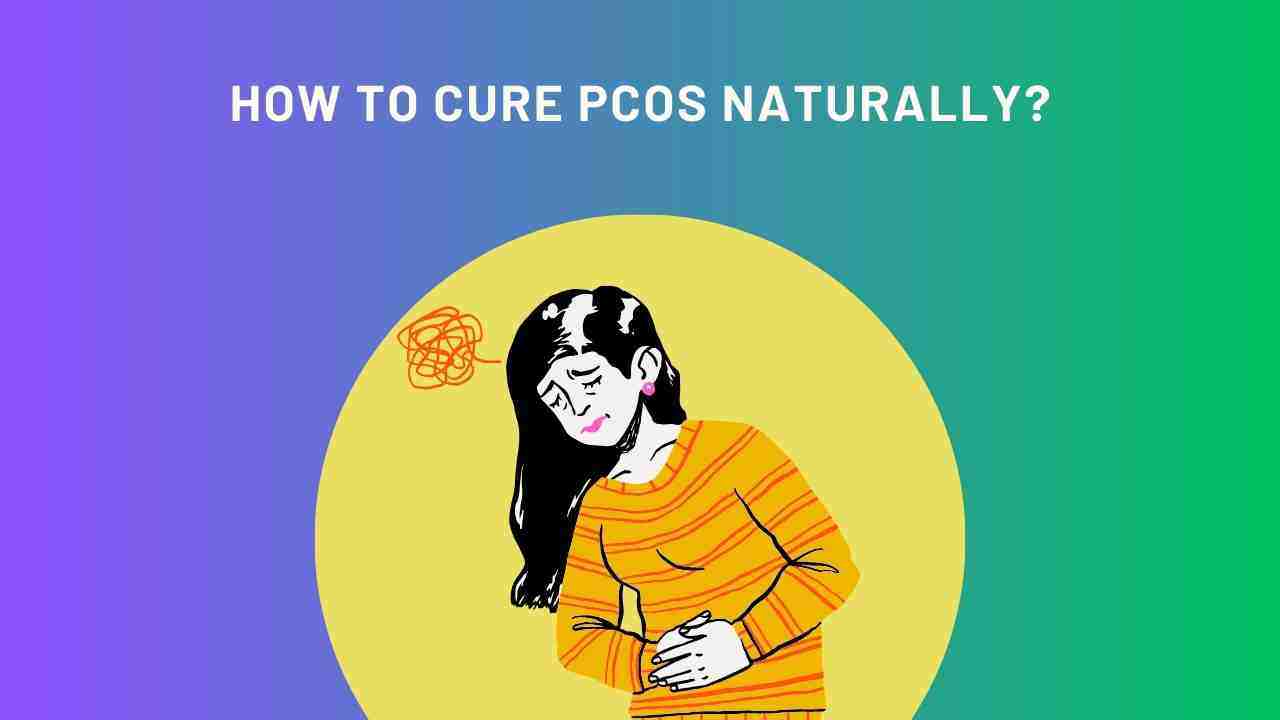PCOS, or Polycystic Ovary Syndrome, is a common hormonal disorder that affects individuals assigned female at birth. It can manifest in a variety of ways, often leading to irregular periods, weight gain, and even difficulty conceiving. If you’re dealing with PCOS, you’re not alone, and there are natural ways to manage and alleviate its symptoms. In this comprehensive guide, we will explore how to cure PCOS naturally with a tailored diet plan.
Understanding PCOS
Before delving into the dietary strategies for managing PCOS, it’s crucial to understand the condition itself. PCOS is characterized by several factors, including insulin resistance, irregular ovulation, and elevated androgen levels (male hormones). These imbalances can lead to a range of symptoms, such as:
- Irregular menstrual cycles.
- Weight gain and difficulty losing weight.
- Excess hair growth.
- Acne and oily skin.
- Mood swings and depression.
- Fertility issues.
The Role of Diet in Managing PCOS
Diet plays a pivotal role in managing PCOS symptoms. A well-planned, PCOS-friendly diet can help regulate insulin levels, reduce inflammation, and support overall hormonal balance. Here are the dietary guidelines that can help you tackle PCOS naturally:
1. Embrace Complex Carbohydrates
Complex carbohydrates, such as whole grains, legumes, and vegetables, are your allies in managing PCOS. They have a lower glycemic index and can prevent spikes in blood sugar levels. This, in turn, reduces insulin resistance and helps maintain steady energy levels.
2. Prioritize Lean Protein
Include sources of lean protein like chicken, turkey, fish, and plant-based options like tofu and legumes in your diet. Protein aids in muscle maintenance and keeps you feeling full, preventing overeating.
3. Incorporate Healthy Fats
Healthy fats from sources like avocados, nuts, and olive oil are essential for hormonal balance. They can also help with inflammation and skin health, common concerns for individuals with PCOS.
4. Load Up on Fiber
Fiber-rich foods, such as fruits and vegetables, support digestion and help control blood sugar levels. They also promote weight management and reduce the risk of cardiovascular complications associated with PCOS.
5. Watch Your Portions
Portion control is crucial, even when consuming healthy foods. Pay attention to portion sizes to manage calorie intake and maintain a healthy weight.
6. Stay Hydrated
Proper hydration is often overlooked but is vital for overall health and can aid in weight management. Opt for water and herbal teas over sugary beverages.
7. Limit Processed Foods
Highly processed foods, such as sugary snacks, fast food, and sugary drinks, can exacerbate insulin resistance and other PCOS symptoms. Minimize your intake of these items.
8. Mindful Eating
Practicing mindful eating can help you recognize hunger and fullness cues, preventing overeating and promoting a healthy relationship with food.
Also check: Digital Detox – Unplugging for a Healthier Lifestyle
Sample PCOS Diet Plan
Here’s a sample PCOS-friendly diet plan to get you started:
Breakfast
- Scrambled eggs with spinach and tomatoes.
- A small serving of Greek yogurt with berries.
- Green tea.
Mid-Morning Snack
- A handful of almonds and a piece of fruit.
Lunch
- Grilled chicken or tofu salad with mixed greens and a vinaigrette dressing.
- A serving of quinoa.
Afternoon Snack
- Carrot sticks with hummus.
Dinner
- Baked salmon with asparagus and brown rice.
- Steamed broccoli.
Evening Snack
- Herbal tea or a small serving of low-fat cottage cheese.
Also check: Nature’s Healing Power – The Benefits of Ecotherapy
Supplements for PCOS Management
In addition to a balanced diet, certain supplements may be beneficial for managing PCOS symptoms. Always consult with a healthcare professional before adding supplements to your routine. Some potential options include:
- Inositol: Known to improve insulin sensitivity.
- N-acetylcysteine (NAC): May help regulate menstrual cycles and reduce oxidative stress.
- Omega-3 fatty acids: Can aid in reducing inflammation and improving skin health.
Lifestyle Considerations
Alongside dietary changes, consider incorporating the following lifestyle modifications:
- Regular physical activity can enhance insulin sensitivity and aid in weight management.
- Stress management techniques like yoga, meditation, and deep breathing can help reduce cortisol levels and alleviate PCOS symptoms.
- Getting adequate sleep is vital for hormonal balance and overall well-being.
In Conclusion
While PCOS can be challenging, making the right dietary and lifestyle choices can significantly improve your quality of life. The journey to curing PCOS naturally starts with embracing a diet that supports hormonal balance, reduces insulin resistance, and manages weight effectively. Remember that consistency is key, and consult with a healthcare professional for personalized guidance. With determination and the right plan, you can take control of your PCOS and lead a healthier, happier life.
